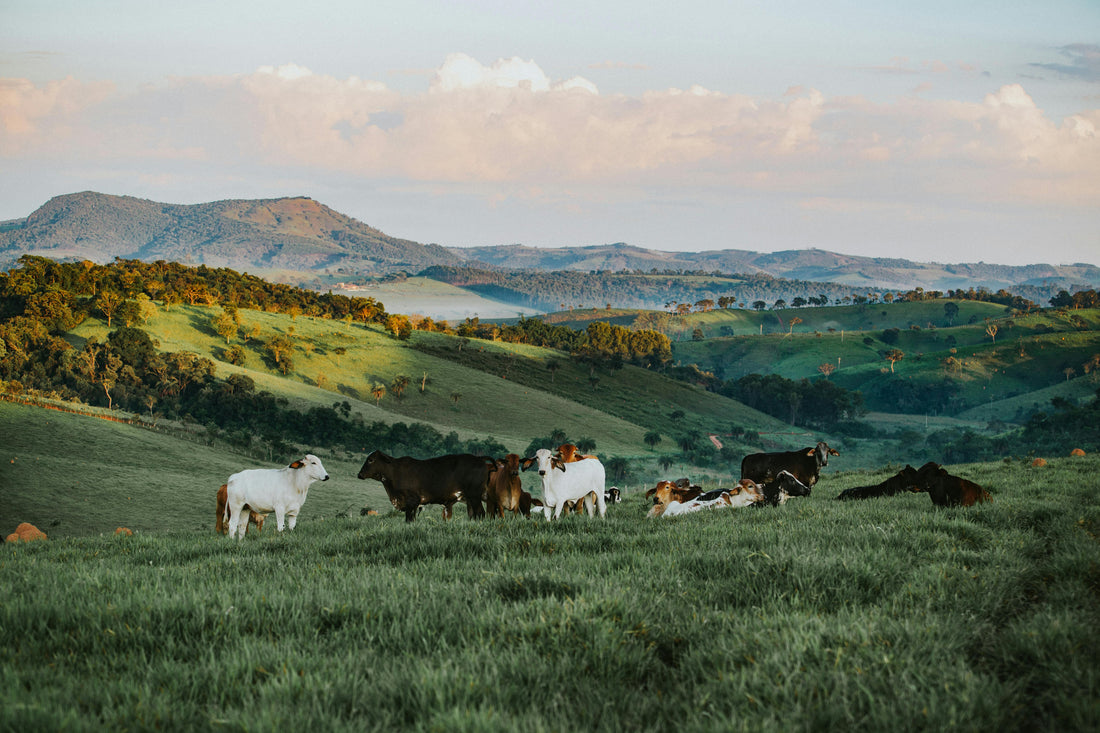
Regenerative Agriculture at Soggy Meadows Farm: A Commitment to Soil Health and Biodiversity
Share
At Soggy Meadows Farm, producing healthy food and nurturing the land that sustains us matters. We believe in farming practices such as Regenerative Agriculture since this approach focuses on improving soil health, boosting biodiversity, and restoring ecosystems. It became a vital part of our mission to cultivate a more sustainable future.
What is Regenerative Agriculture
It is a holistic approach that seeks to regenerate and restore the land beyond sustainability. Regenerative agriculture works in sync with nature compared to conventional farming practices, which rely on synthetic chemicals and monoculture farming. It also enhances our natural systems that provide for us instead of depleting them. When it comes to its primary goal, its goal is to improve water retention, restore soil fertility, sequester carbon, and promote the health of surrounding ecosystems.
The key practices of regenerative agriculture are the following:
- Cover Cropping: By planting crops that help enrich and protect the soil during the off-season.
- Crop Rotation: To maintain soil fertility and prevent disease by growing different types of crops in succession.
- Reduced Tillage: To minimize soil disturbance that makes it preserve its health and structure.
- Integrating Livestock: To improve soil health, it uses natural grazing and manure cycling of animals.
- Composting: To improve nutrient cycling and soil structure by adding organic matter back into the soil
By focusing on these practices, regenerative agriculture allows the land to thrive in a way that benefits both farmers and the environment.
Why Regenerative Agriculture Matters
The importance of regenerative agriculture cannot be overstated. Conventional farming methods have led to widespread soil degradation, a loss of biodiversity, and harmful environmental impacts such as water pollution and greenhouse gas emissions. Over time, these methods have left our soils depleted and our ecosystems fragile.
Regenerative agriculture offers a solution to these challenges by improving soil health, restoring natural ecosystems, and enhancing the resilience of the land. The following are some of the key benefits of regenerative practices:
1. Improved Soil Health
Healthy soil is the foundation of all good farming, and regenerative agriculture is focused on rebuilding and enriching the soil. By using practices like reduced tillage, cover cropping, and composting, regenerative farmers can restore soil fertility, enhance microbial activity, and improve its ability to retain water and nutrients. Having a healthy soil leads to healthier plants, which in turn leads to better yields and more resilient crops.
2. Biodiversity Conservation
One of the central principles of regenerative agriculture is increasing biodiversity. Rather than focusing on a single crop year after year, regenerative practices encourage crop rotation and diversification. This helps prevent the loss of specific soil nutrients, reduces the likelihood of pests and diseases, and supports a wider range of plant and animal species. At Soggy Meadows Farm, we integrate diverse crops and even work with animals to maintain balance and boost biodiversity.
3. Carbon Sequestration
Regenerative agriculture can play a significant role in mitigating climate change. By promoting healthy soils and reducing the use of synthetic fertilizers, regenerative farming increases the soil’s ability to store carbon. Soil is one of the largest carbon storages on Earth, and practices like cover cropping, agroforestry, and holistic grazing can help reduce releasing carbon dioxide from the atmosphere, reducing the overall concentration of greenhouse gases.
4. Water Retention and Resilience
Soils that are healthy can absorb and retain water more effectively than degraded soils. This not only reduces the risk of erosion but also increases the farm’s ability to cope with droughts and floods. By focusing on soil health, regenerative agriculture helps improve water management, which is especially crucial in an era of unpredictable weather patterns and climate extremes.
The Future of Farming at Soggy Meadows Farm
As we move forward, our commitment to regenerative agriculture will only grow stronger. By continually refining our practices and sharing our knowledge, we aim to inspire others to adopt regenerative methods, ensuring a healthier planet for future generations.
Regenerative agriculture is not just a trend, it’s a necessity for the long-term health of our land, our crops, and our communities. At Soggy Meadows Farm, we are proud to be part of a movement that is changing the way we think about farming. Together, we can cultivate a future where the land is cared for, biodiversity thrives, and our food system is more sustainable and resilient.
